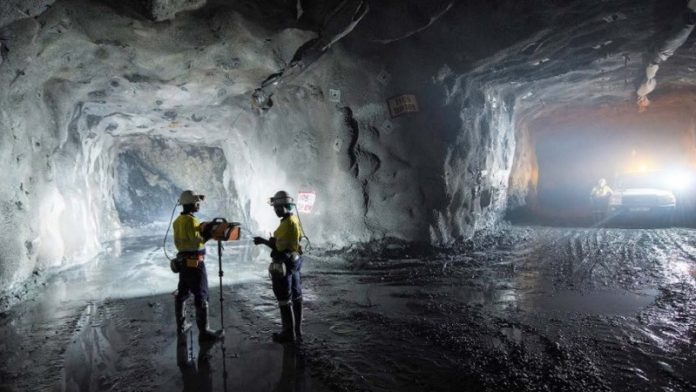
STUART Gale, interim CEO of Australia’s Resolute Mining, says it could take years to win back the confidence of the market following a string of events last year that resulted in the resignation of the firm’s CEO, John Welborn, in October.
“We need to deliver – production, cash, debt reduction – March, June, September, December … quarter after quarter. It will be a long journey,” he said in an interview. For now, the share price is what it is: 62 Australian cents. Not since the gold price was at $1,230/oz, five years ago, has the company been so poorly valued.
First stop will be for Resolute’s board to make a full time appointment. Gale confirms he wants the job having previously served as Resolute’s CFO and, before that, held down various financial management roles at Fortesque Metals, the iron ore producer. He is not too keen on discussing whether his lack of technical background works against him.
“I have been around mining companies for a while and we have got a good technical team in place,” he says. Gale also thinks many of the challenges of last year have been worked through including debt reduction which has been one of the major headwinds.
Selling Bibiani, a Ghana mine currently in mothballs, to China’s Chifeng Jilong Gold Mining Company, will release about $100m that will be pumped straight into debt. Net debt will be reduced to $80m and there’s a chance the company could be net cash by the end of the year. This will have the effect of exposing more of the firm’s production – estimated to be 350,000 to 371,000 ounces this year – to spot prices.
The other big item is stability at Syama, Resolute’s flagship Mali mine which comprises about two-thirds of total production (the balance of gold production is from the Mako gold mine in Senegal).
Gale says labour disruption at Syama last year, which resulted in lost production, was partly a function of national industrial action. That is now behind the company – and needs to stay there – so that the company can set about “changing the narrative”, as Gale describes it.
2020 was a noisy year filled with balance sheet restructuring, non-core asset sales, and a UK listing, suffice to merely mention Covid-19 and national disruption in Mali. The March quarter numbers will be the first that Gale can say a truly produced under his watch. It will be critical he and the company get off to a somewhat quieter, solid start in 2021.











